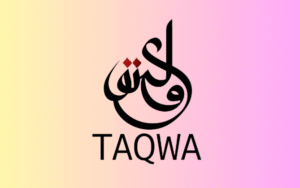A Detailed Look at the Different Types of Sadaqah

In the journey of our daily lives, we all search for tranquility. Similarly, we seek a path that leads to success in this world and the hereafter. To achieve closeness to Allah and earn His pleasure, Islam teaches us about a unique form of worship: Sadaqah. Indeed, the Holy Quran and authentic Hadith repeatedly emphasize its importance. This guide, therefore, explores the immense virtues of Sadaqah, the various types of Sadaqah, and simple acts that carry similar rewards. Through these acts, Allah forgives our sins, protects us from the Hellfire, and grants us shelter in the cool shade of Paradise.
However, the mercy of Allah is so vast that He has not limited the path to earning rewards to the wealthy alone. In His wisdom, He has prescribed countless good deeds through which a believer can earn the reward of Sadaqah without spending any money. In this article, consequently, we will delve into the incredible virtues of Sadaqah and explore the simple, everyday acts that carry a similar, immense reward, Insha’Allah.
The Transformative Power of Sadaqah: Earning Your Reward for Charity in Islam
The word “Sadaqah” goes beyond mere financial donation; its root meaning implies truthfulness and sincerity. In Islamic terms, Sadaqah is spending from one’s wealth for the sake of others. A person does this seeking only the pleasure of Allah, without expecting anything in return. In turn, its rewards and benefits are so immense they defy our imagination, demonstrating the true power of Sadaqah.
1. A Powerful Shield Against Satan
Our greatest enemy, Satan, constantly whispers to mislead us. Fortunately, Sadaqah is a powerful weapon against his schemes. The Messenger of Allah (ﷺ) said,
“When a person gives something in charity, he breaks the jaws of seventy devils.”
(Musnad Ahmad, Hadith 13791)
2. The Blessing of Receiving Angels’ Prayers
Imagine receiving prayers from the angels of Allah. Undoubtedly, this is one of the greatest honors for a generous person. Specifically, the Messenger of Allah (ﷺ) said,
“Every day two angels descend and one of them says, ‘O Allah, give in compensation to the one who spends (in charity),’ and the other says, ‘O Allah, bring destruction to the one who withholds.'”
(Sahih al-Bukhari, Hadith 1442; Sahih Muslim, Hadith 1010)
3. It Pacifies the Lord’s Anger
Through carelessness or error, we sometimes commit acts that may displease our Creator. Thankfully, giving charity in secret is a powerful way to extinguish the Lord’s anger. As a matter of fact, the Prophet (ﷺ) said,
“…Charity given in secret extinguishes the wrath of the Lord.”
(Sunan al-Kubra lil-Bayhaqi, Hadith 7802)
4. A Cure for Illnesses and Protection for Wealth
Sadaqah offers solutions not only for the hereafter but also for our worldly problems. For example, it is an effective means of healing. The Messenger of Allah (ﷺ) said,
“Cure your sick with Sadaqah, protect your wealth with Zakat, and prepare for calamities with Dua (supplication).”
(Sahih al-Jami’, Hadith 3358)
5. Freedom from Hellfire and Shade on Judgment Day
On the formidable Day of Judgment, there will be no other shade. However, Allah will shade seven types of people under His Throne. Among them is the one who
“gives charity so secretly that his left hand does not know what his right hand has given.”
(Sahih al-Bukhari, Hadith 660)
Moreover, even giving a piece of a date can save you from the Hellfire. For this reason, the Prophet (ﷺ) said,
“Protect yourselves from the Hellfire even if it is with half a date (given in charity).”
(Sahih al-Bukhari, Hadith 1417)
Beyond Wealth: Exploring Charity Without Money
This begs the question: Does someone without financial means miss out on these immense rewards? Absolutely not. Islam is such a balanced way of life that every good deed can attain the status of Sadaqah. Now, let’s explore the beautiful types of Sadaqah that don’t require wealth.
1. Types of Sadaqah Through Worship
- The Duha (Chasht) Prayer: Allah (SWT) created us with 360 joints. For each one, a charitable act is due every day as a form of gratitude. While this may seem like an enormous task, the Messenger of Allah (ﷺ) made it easy for us. He said, “…and performing two rak’ahs of Duha prayer is sufficient for all of that.” This means by offering just two units of prayer in the morning, you fulfill your gratitude for all 360 joints and earn the reward of 360 acts of charity. (Sahih Muslim, Hadith 720)
- The Remembrance of Allah (Dhikr): Remembering Allah is an act of worship that requires no physical effort or financial expense. Yet, its reward is immeasurable. The Messenger of Allah (ﷺ) said, “Every Tasbih (saying ‘SubhanAllah’) is a charity, every Tahmid (saying ‘Alhamdulillah’) is a charity, every Tahlil (saying ‘La ilaha illallah’) is a charity, and every Takbir (saying ‘Allahu Akbar’) is a charity.” (Sahih Muslim, Hadith 1006) In fact, another Hadith describes Dhikr as superior to spending gold and silver. (Jami` at-Tirmidhi, Hadith 3377)
- Sleeping with the Intention of Tahajjud: Behold the beauty of Islam, where even your sleep can become an act of worship. For instance, if a person goes to bed with the sincere intention to wake up for Tahajjud but sleep overtakes them, Allah still records the full reward for them. Due to their pure intention, their sleep itself becomes a gift, a Sadaqah from their Lord. (Sunan an-Nasa’i, Hadith 1787; Sunan Ibn Majah, Hadith 1344)
- Recitation of the Quran: Reciting the Quran is nourishment for the believer’s soul, and this act also carries the reward of Sadaqah. The Prophet (ﷺ) said, “The one who recites the Quran aloud is like the one who gives charity openly. Similarly, the one who recites the Quran silently is like the one who gives charity secretly.” (Jami` at-Tirmidhi, Hadith 2919)
2. Types of Sadaqah in Your Conduct and Social Acts
- Smiling: A simple, genuine smile can be a form of Sadaqah. Furthermore, the Messenger of Allah (ﷺ) said, “Smiling in the face of your brother is a charity for you.” (Jami` at-Tirmidhi, Hadith 1956) It is an act that costs nothing but fosters love, sincerity, and harmony among people.
- Enjoining Good and Forbidding Evil: This is one of the defining characteristics of the Muslim Ummah and an essential social responsibility. Fulfilling this duty is also a form of Sadaqah. Allah says in the Quran:
كُنتُمْ خَيْرَ أُمَّةٍ أُخْرِجَتْ لِلنَّاسِ تَأْمُرُونَ بِالْمَعْرُوفِ وَتَنْهَوْنَ عَنِ الْمُنكَرِ
“You are the best nation produced [as an example] for humankind. You enjoin what is right and forbid what is wrong…”
(Quran, Surah Aal-Imran, 3:110)
Consequently, the Prophet (ﷺ) stated, “Enjoining good is a charity, and forbidding evil is a charity.” (Sahih Muslim, Hadith 1006) - Refraining from Harming Others: Even if you cannot benefit others, protecting them from your own harm is a noble act. In essence, this is a charity from you to yourself. Abu Dharr (RA) asked the Prophet (ﷺ), “What if I am unable to do any good work?” He replied, “You restrain your evil from the people, for that is a charity from you to yourself.” (Sahih al-Bukhari, Hadith 2518) This highlights the beauty of charity without money in Islam.
- Reconciling Between People: Satan most loves disputes and broken relationships. Therefore, the Prophet (ﷺ) considered mediating justly between two parties to be a deed superior to voluntary fasting, prayer, and charity. (Jami` at-Tirmidhi, Hadith 2509)
3. Philanthropy in Your Daily Life
- Removing a Harmful Object from the Path: Removing a stone, thorn, or any harmful object from a path is a branch of faith. Moreover, Allah considers it a Sadaqah. This act shows your sense of responsibility and compassion for your community. (Sahih al-Bukhari, Hadith 623; Sahih Muslim, Hadith 1006)
- Helping Others: In fact, every act of kindness is a charity. This includes guiding someone who is lost, helping a person get on their ride, or even pouring water from your bucket into your brother’s bucket. In His mercy, Allah records each of these small acts as Sadaqah. (Jami` at-Tirmidhi, Hadith 1956)
- Walking to the Mosque: When a person walks to the mosque for congregational prayer, every step they take counts as an act of charity. Specifically, one step raises his rank, and the next erases a sin. (Sahih Muslim, Hadith 666)
- Planting a Tree or Cultivating Land: This is a form of ongoing charity (Sadaqah Jariyah). If a Muslim plants a tree or cultivates a crop, and a human, bird, or animal eats from it, Allah counts it as a charity for him. Amazingly, even if someone steals a portion of it, Allah records it as charity for him. (Sahih al-Bukhari, Hadith 2320; Sahih Muslim, Hadith 1552)
4. Charity in Your Personal and Family Life
- Spending on Your Family: Many believe that charity is only for the poor outside the home. However, spending on one’s family is one of the most important types of Sadaqah. For this reason, Allah says:
يَسْأَلُونَكَ مَاذَا يُنفِقُونَ ۖ قُلْ مَا أَنفَقْتُم مِّنْ خَيْرٍ فَلِلْوَالِدَيْنِ وَالْأَقْرَبِينَ وَالْيَتَامَىٰ وَالْمَسَاكِينِ وَابْنِ السَّبِيلِ
“They ask you, [O Muhammad], what they should spend. Say, ‘Whatever you spend of good is [to be] for parents and relatives and orphans and the needy and the traveler…'”
(Quran, Surah Al-Baqarah, 2:215)
The Messenger of Allah (ﷺ) said, “When a Muslim spends on his family seeking reward for it from Allah, Allah counts it as a charity for him.” (Sahih al-Bukhari, Hadith 55) - Fulfilling Desires in a Halal Way: Islam is a complete way of life. Here, even the sacred physical relationship between the couple is considered an act of worship.. When the Companions expressed surprise, the Prophet (ﷺ) explained, “Do you not see that if he were to satisfy his desire in a forbidden manner, he would be sinful? Similarly, if he satisfies it in a lawful manner, he will have a reward.” (Sahih Muslim, Hadith 1006)
- Giving a Goodly Loan (Qard-e-Hasana): Providing an interest-free loan to someone in need is a noble act equivalent to charity. The Prophet (ﷺ) said, “Any Muslim who gives a loan to another Muslim twice, it will be like giving charity once.” (Sunan Ibn Majah, Hadith 2430)
- Giving Respite to a Debtor: If someone is unable to repay a debt on time, giving them an extension or forgiving the debt is an act of immense virtue. As a result, whoever gives respite to a debtor in difficulty will receive the reward of giving that amount in charity every day until the person pays the debt. (Musnad Ahmad, Hadith 23046)
Conclusion
In truth, a duty of charity rests upon us every single day. The Almighty Allah, in His infinite mercy, has opened countless doors for us to fulfill this duty. Crucially, the reward for charity in Islam is not confined to financial donations. Alongside spending from our wealth, every kind word, beautiful gesture, and act of compassion can bring us the immense reward of Sadaqah. By embracing these diverse types of Sadaqah, we open countless doors to Allah’s mercy. Let us therefore strive to spend according to our means and, at the same time, integrate these simple deeds into our lives to seek shelter under the shade of Allah’s mercy. May Allah grant us all the ability to do so. Ameen.
Frequently Asked Questions
What are the main benefits of giving Sadaqah?
According to Islamic teachings, Sadaqah has immense benefits. It serves as a shield against Satan, extinguishes the Lord's anger, can be a cure for illnesses, protects wealth, and provides shade for the giver on the Day of Judgment.
What is an example of ongoing charity (Sadaqah Jariyah)?
An example of ongoing charity, or Sadaqah Jariyah, is planting a tree or cultivating a crop. The person who planted it continues to earn rewards as long as humans, birds, or animals benefit from it.
What is the difference between Sadaqah vs Sadaqah Jariyah?
While giving food to a hungry person is a noble act of Sadaqah with an immense, immediate reward, building a well that provides water for a community for years is Sadaqah Jariyah, as the rewards flow continuously. Both are highly valued, but Sadaqah Jariyah provides a legacy of benefit and reward that lasts long after the initial act.









